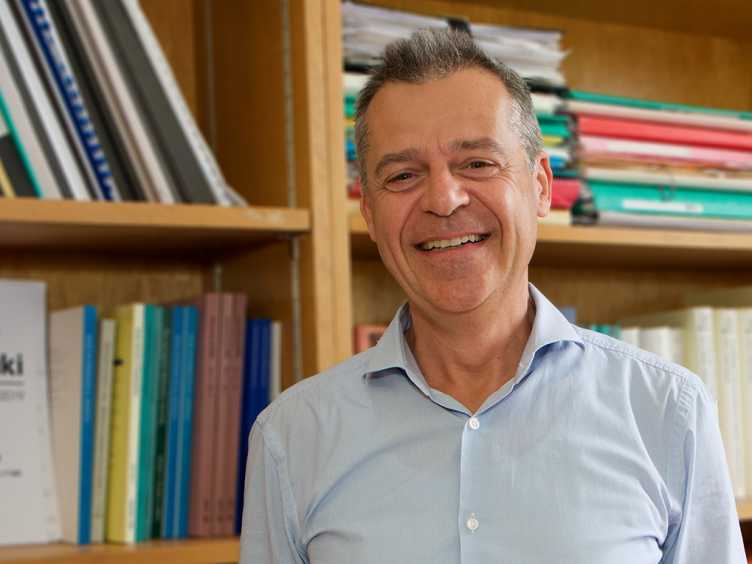Interview with the resigning FIM Director Tristan Rivière
Ten years ago, back in autumn 2009, Tristan Rivière took up the post of FIM Director. In the following interview he tells us what was important to him during his time as director and what events he likes to remember.

What prompted you to make this career move?
The FIM has a prestigious history and many believe it to be Zurich’s showcase for mathematical research. That made the opportunity a really exciting one, and at the same time I knew it would be a challenge. I felt a huge sense of responsibility when Ralph Eichler, who was President at the time, appointed me to the Director role – partly because I knew how important it would be to ensure that the FIM’s activities kept doing their part to uphold the excellent standards of mathematical research taking place in Zurich.
The FIM's work is rather unique and exciting. It could be compared to the work of a chief editor where the FIM Director receives activity proposals (courses, workshops, conferences, invitations....) and collects evaluations and external opinions before to come to a decision. We operate separately from the Department of Mathematics, so although we mostly work in partnership with it, that's not always the case. I had regularly to consider proposals from colleagues at the University of Zurich for instance.
It can be tricky to manage this position, as it’s quite ambiguous. I also found it a challenge to strike the right balance between applied mathematics and pure mathematics, but my own field of research, which focuses on partial differential equations and geometric analysis, has been really useful in achieving this. It’s a good background to have as the Director, as the position puts me at the centre of everything we do in relation to mathematics.
What has been your key area of focus during your time as Director?
I’ve always believed that it’s crucial for us to present the latest findings from mathematical research, and this has meant inviting people to come and give presentations here in Zurich whenever these new findings have come to light. This is an important factor in upholding the prestigious standing of the Department and ETH Zurich, but it’s also a vital tool in educating our young doctoral students and postdocs. Encouraging the next generation has always been important to me too, and that’s why FIM enables young researchers to take part in its conferences by giving them financial support. I still have clear memories of the time when I was a doctoral student myself and remember what my first conferences were like to this day. We should never forget that these young mathematicians will be our future colleagues, so investing in them represents an important investment in the future.
Do you have any particularly happy memories of events during your time in office?
I have so many happy memories that it’s hard to pick just one! The field of mathematics has made some significant strides in several areas between 2009 and 2019. In 2012, we saw proof of the Yau-Tian-Donaldson conjecture on Fano manifolds being characterised by Kähler-Einstein metrics, as well as proof of the Willmore conjecture. In 2013, the 'bounded gap between primes' conjecture in number theory was proven and in 2017 we saw proof of the positive mass conjecture in any dimension. 2018 then produced proof of the Yau conjecture on the existence of an infinite number of minimal surfaces in small dimensions. Those are just a few examples.
Each time it received word of these findings, the FIM always tried to organise a workshop or mini-course on the subject, or invite the mathematicians personally to give a presentation on it here in Zurich – including Simon Donaldson, Tian Gang, Fernando Codá Marques, André Neves, Shing-Tung Yau and Richard Schoen.
I also have very fond memories of the FIM’s 50th anniversary celebrations in 2015. We invited a group of first-class speakers along to the event, although they were still fresh-faced then and not quite as famous as they are today. Several of them actually won the Fields Medal in 2014 and 2018, including Alessio Figalli.
On 1 September, Alessio Figalli will be stepping into the role of FIM Director. Is there any advice that you’d like to pass on to him?
Alessio is already very familiar with the Department and the FIM, so he knows how important each one of them is to the other.
One of the programmes that is very close to my heart is the Hermann-Weyl-Instructorship programme, which I launched in 2018 with the aim of fostering the development of young mathematicians. I very much hope that my successor will continue this. Otherwise, I don’t have any specific advice for him, but I wish him every success as Director and I hope that he enjoys the position immensely.
